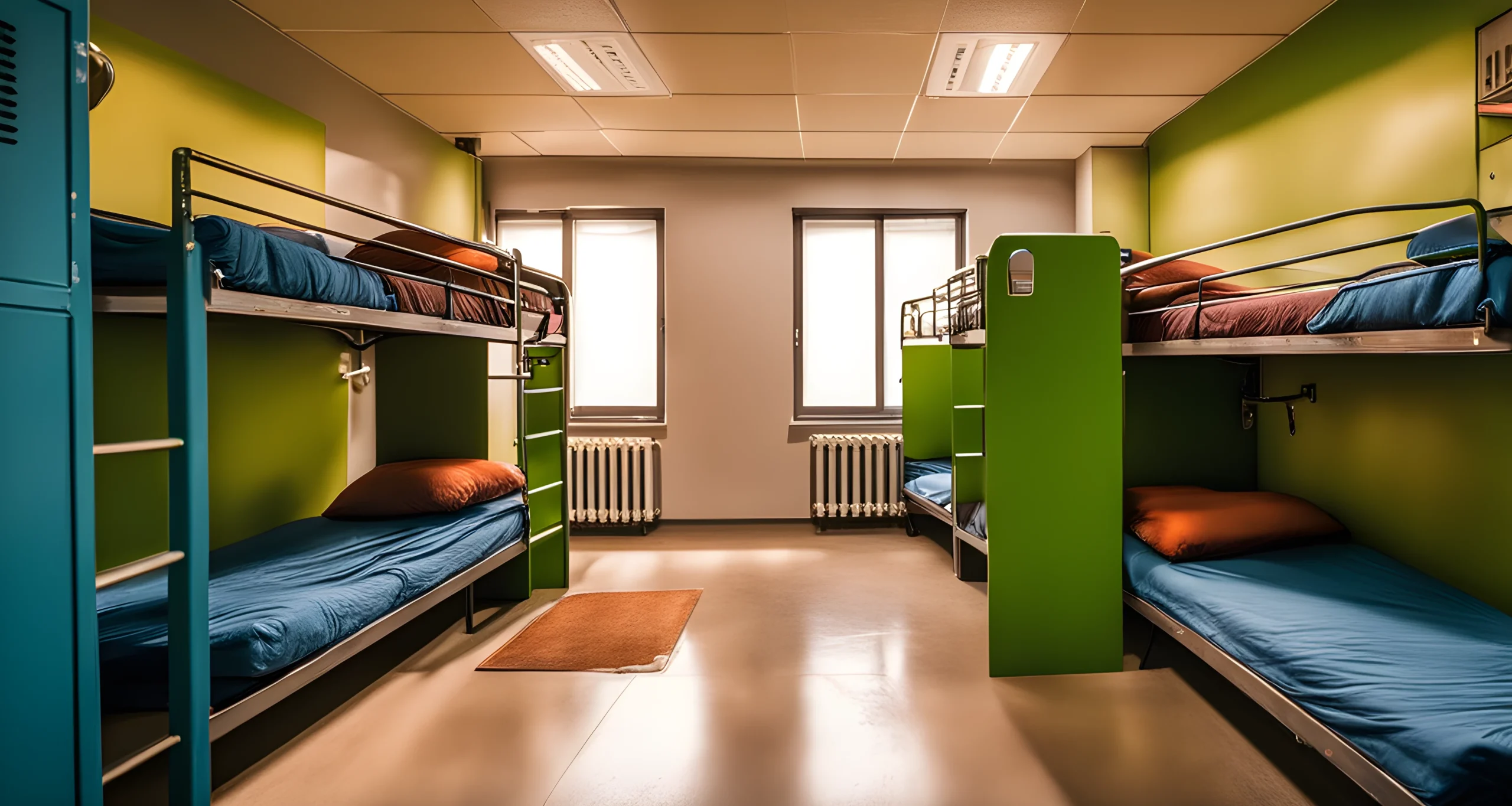Introduction
Traveling and staying for free can be a fantastic way to explore the world without breaking the bank. One of the most effective ways to achieve this is by volunteering through platforms like Worldpackers, which connects travelers with hosts who need a helping hand in exchange for accommodation and cultural immersion. This approach not only provides a unique experience but also allows you to acquire new skills and immerse yourself in local cultures.
Benefits of Volunteering for Budget Travel
- Volunteering through platforms like Worldpackers provides free accommodation, allowing travelers to save on one of the biggest expenses of their trip.
- The cultural immersion that comes with volunteering provides a deeper understanding of local customs and traditions, enriching the travel experience.
- By volunteering, travelers can acquire new skills and knowledge that can be valuable for personal and professional growth.
Exploring New Destinations on a Budget
- Volunteering opportunities through platforms like Worldpackers exist in various destinations around the world, giving travelers the chance to explore new places without spending a fortune.
- By staying with local hosts, travelers can gain insider knowledge about the best off-the-beaten-path attractions and hidden gems in their chosen destination.
Sustainable Travel Practices
- Volunteering often involves contributing to meaningful projects that benefit local communities, promoting responsible and sustainable travel practices.
- By connecting with locals through volunteering, travelers can foster positive relationships and leave a positive impact on the places they visit.
With these budget accommodation tips in mind, travelers can embark on a meaningful journey filled with unique experiences while keeping their expenses low. To complement your budget-friendly travels, be sure to check out our article on Cheap and tasty street bites for delicious yet affordable food options while exploring new destinations.
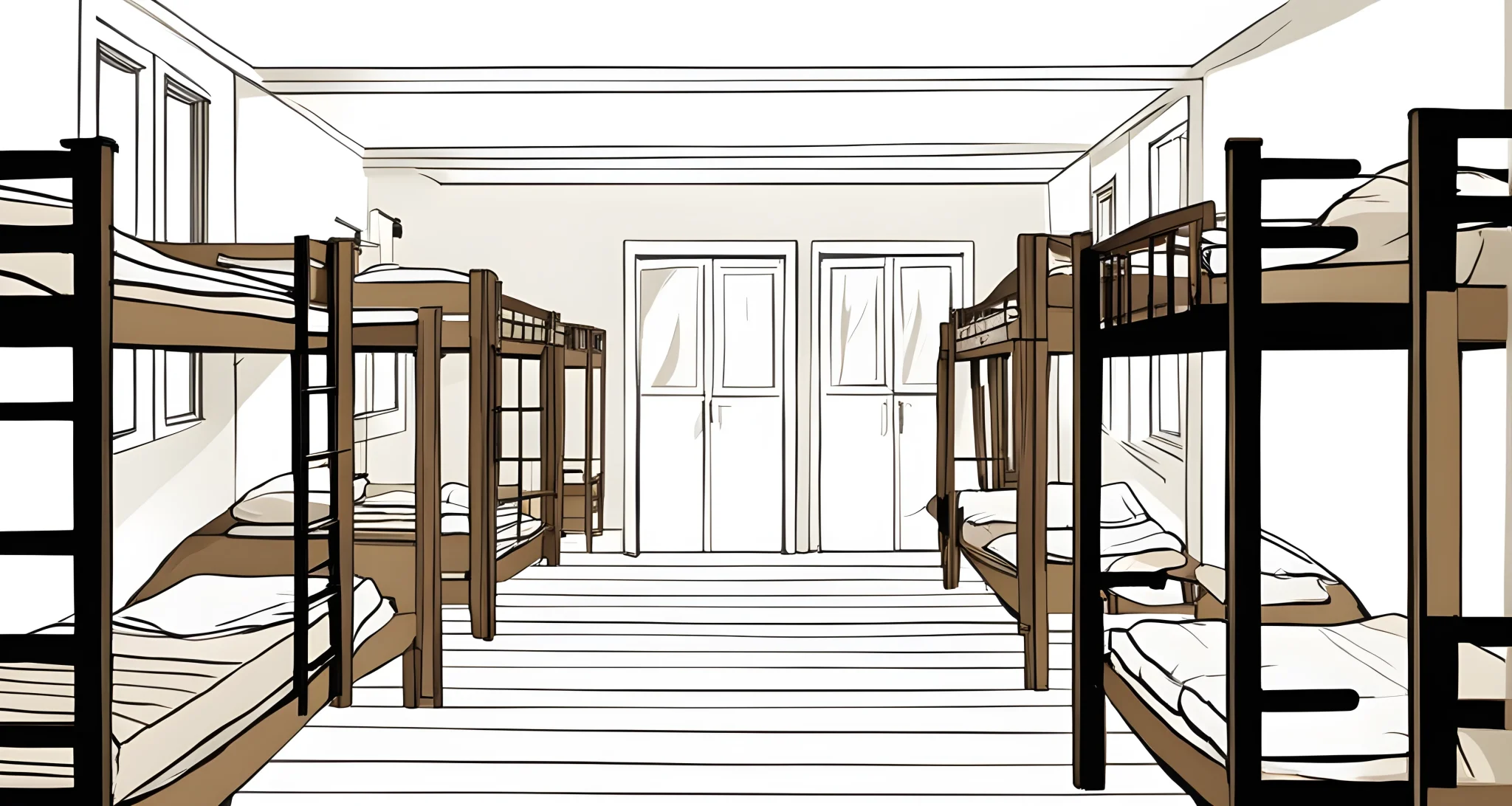
Factors to Consider for Budget Travel
When planning for budget travel, there are several factors to consider to make the most of your experience. Here are some important considerations to keep in mind:
Volunteer Opportunities
Consider participating in volunteer opportunities that offer free room and board in exchange for your time and skills. For instance, you could help with a local eco-project in Costa Rica, learn pasta-making from a nonna in Tuscany, or teach English in Thailand. The possibilities are endless, and the benefits are numerous: you get a free room and board, new skills, and epic adventures.
Off-Peak Travel
Traveling during off-peak seasons can significantly lower your expenses. Research the best times to visit your destination to take advantage of lower airfare, accommodation, and activity costs. Check out our article on Budget-friendly airfare days to find out the cheapest days to fly for even more savings.
Alternative Accommodations
Consider alternative accommodations such as hostels, guesthouses, or homestays instead of traditional hotels. These options often provide a more authentic travel experience and can be much more budget-friendly. Additionally, look into house-sitting or couch-surfing opportunities for free accommodations.
Local Transportation
Opt for local transportation options such as buses, trains, or bicycles instead of expensive taxis or rental cars. Not only will this save you money, but it will also give you a chance to immerse yourself in the local culture and interact with locals.
Flexible Itinerary
Flexibility is key when it comes to budget travel. Keep an open mind and be willing to adjust your itinerary based on the best deals and opportunities that come your way. Spontaneous adventures often lead to some of the most memorable travel experiences.
By considering these factors, you can make the most of your budget travel experience and create lasting memories without breaking the bank.
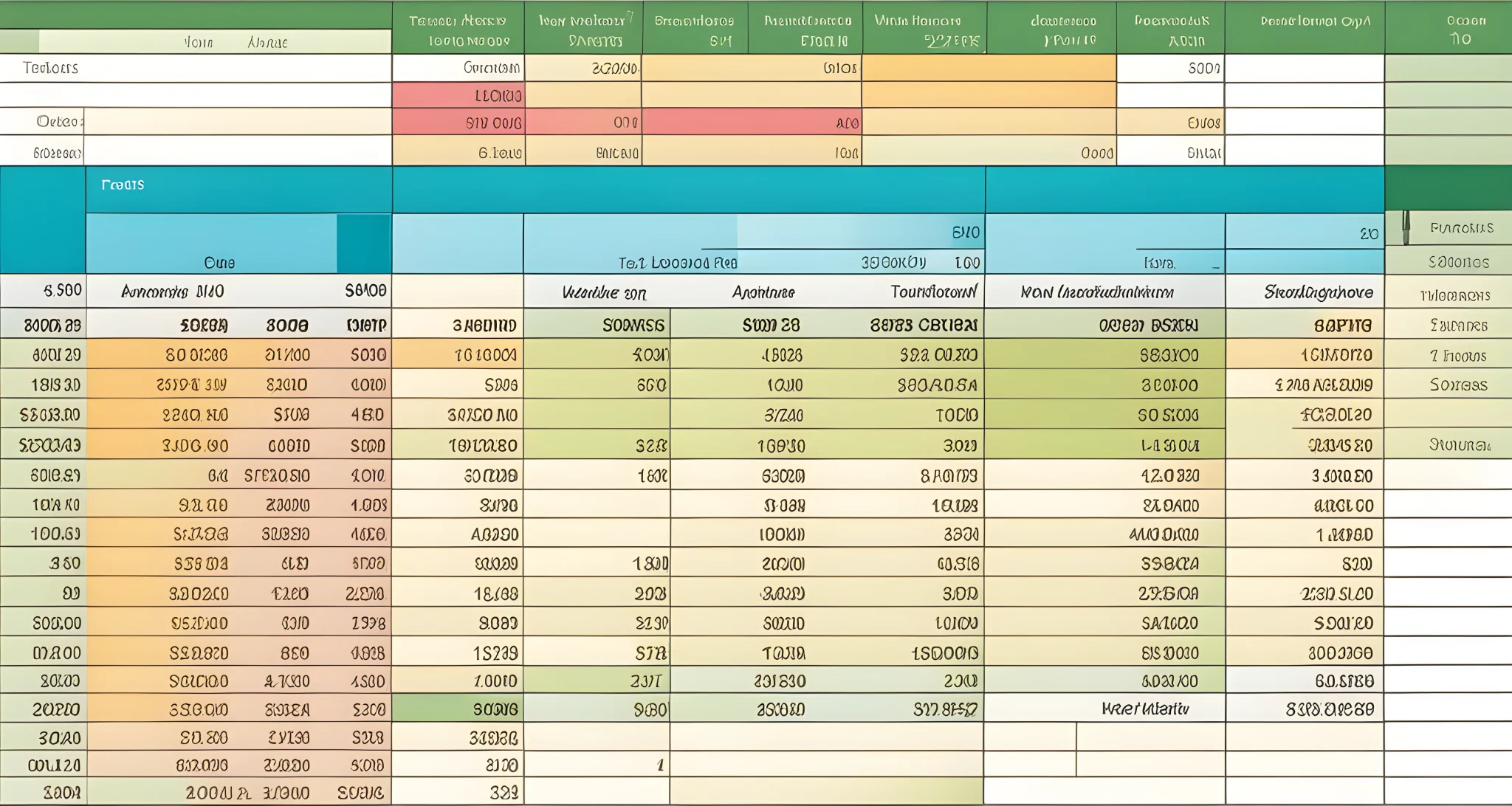
Creating a Detailed Travel Budget Spreadsheet
When it comes to budget travel, one of the most important tools you can have in your arsenal is a detailed travel budget spreadsheet. This will help you keep track of your expenses, stay on top of your budget, and make adjustments as needed. Here are some tips for creating a comprehensive travel budget spreadsheet:
Expense Categories
- Start by listing all your anticipated expenses, including transportation, accommodation, food, activities, and any miscellaneous costs.
- Be sure to include a buffer for unexpected expenses or emergencies.
Refining Your Budget
- Once you have all your expense categories listed, it’s time to assign specific amounts to each category based on research and estimates.
- Consider using historical data or average costs in the destination to refine your budget.
Budgeting by Item or Category
- Some travelers prefer to budget by item (e.g. flight, hotel, meals) while others prefer to budget by category (e.g. transportation, accommodation, food).
- Choose the method that works best for you and stick with it throughout your trip.
Adjusting Your Budget
- As you travel, be sure to track your actual expenses and compare them to your budgeted amounts.
- If you find that you are consistently overspending in certain categories, be prepared to adjust your budget accordingly.
When it comes to finding budget accommodations during your travels, there are several options available. One approach is to use platforms like Trustedhousesitters to house sit for homeowners while they are away. This can be a fantastic way to live in luxurious settings without paying a fortune. To learn more about top affordable European travel destinations, check out Cheap European vacation locations.
By creating a detailed travel budget spreadsheet and being flexible with your accommodations, you can make the most of your budget while still enjoying amazing travel experiences. With careful planning and a bit of creativity, budget travel can be both affordable and incredibly rewarding.
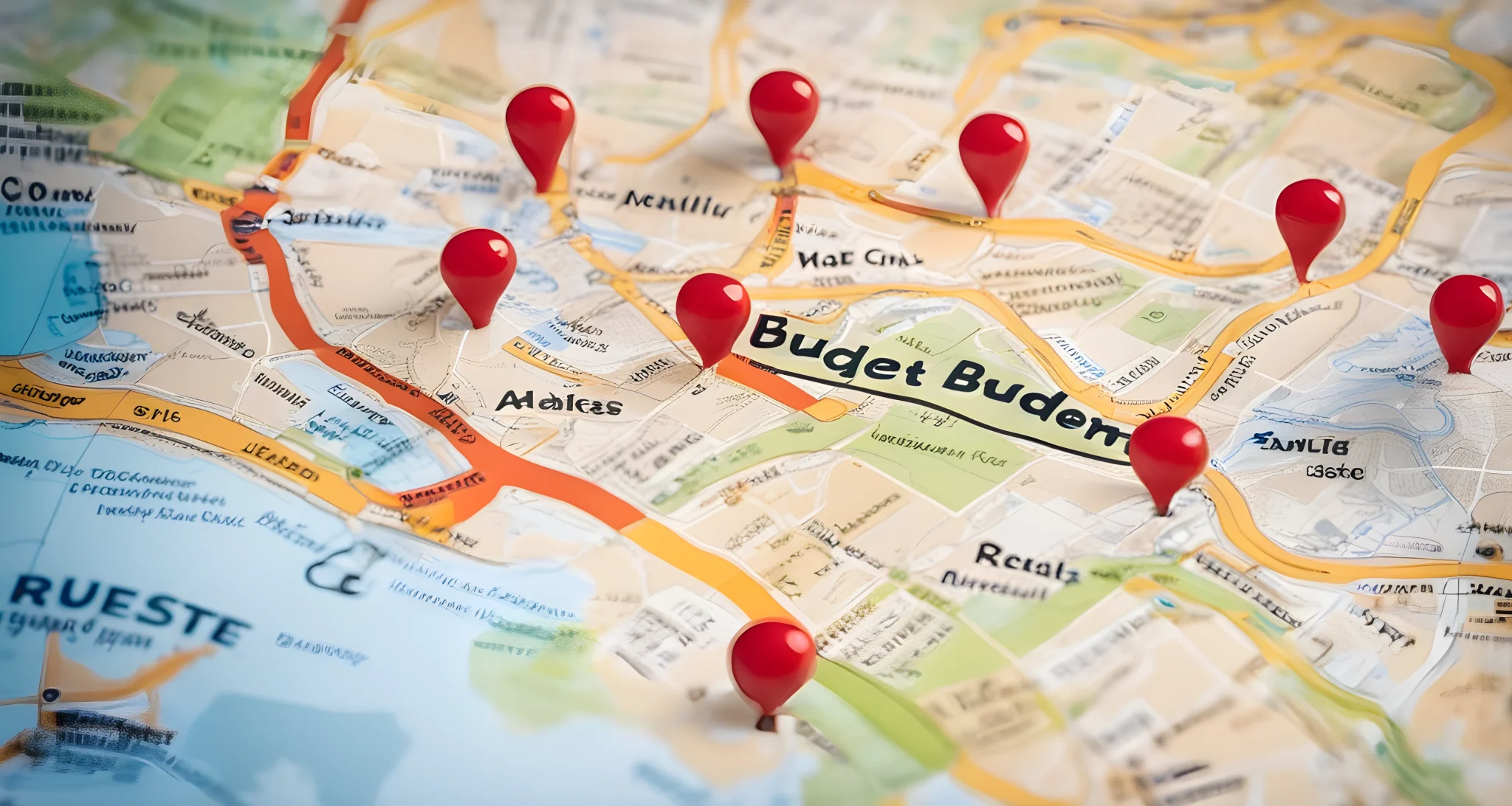
Refining Your Budget with Expense Categories
When refining your travel budget, it’s important to break down your expenses into categories to get a clear understanding of where your money is going. By organizing your expenses into categories, you can better track and manage your spending throughout your trip.
Expense Categories to Consider
- Accommodation: Whether you’re staying in a hotel, hostel, or using alternative accommodations like Couchsurfing, it’s essential to allocate a specific budget for lodging.
- Transportation: This category includes flights, train tickets, rental cars, and public transportation fares. Look for the best times to find travel deals and discounts Top Travel Deals Time to save money on transportation costs.
- Food: From dining out at restaurants to picking up groceries at local markets, food expenses can add up quickly. Be mindful of how much you’re spending on meals and snacks.
- Activities and Entertainment: Budget for sightseeing tours, museum admissions, and any other activities or events you want to experience during your travels.
- Miscellaneous: This category covers any additional expenses such as souvenirs, shopping, or unexpected costs that may arise.
Using Your Expense Categories
Once you have identified the different expense categories, you can allocate specific amounts of money to each one based on your overall travel budget. By having designated budgets for each category, you can monitor your spending more effectively and make adjustments as needed.
Tracking your expenses within these categories will also provide valuable insight into where you’re spending the most money. If you find that one category is consistently exceeding its budget, you may need to reevaluate your spending habits or consider reallocating funds from other categories.
By refining your budget with expense categories, you can gain better control over your finances while traveling and ensure that you stay within your desired spending limits. This approach allows for flexibility and adaptability as you navigate the various costs associated with exploring new destinations.
With a well-organized budget that reflects your travel priorities and preferences, you can make the most of your journey without overspending.
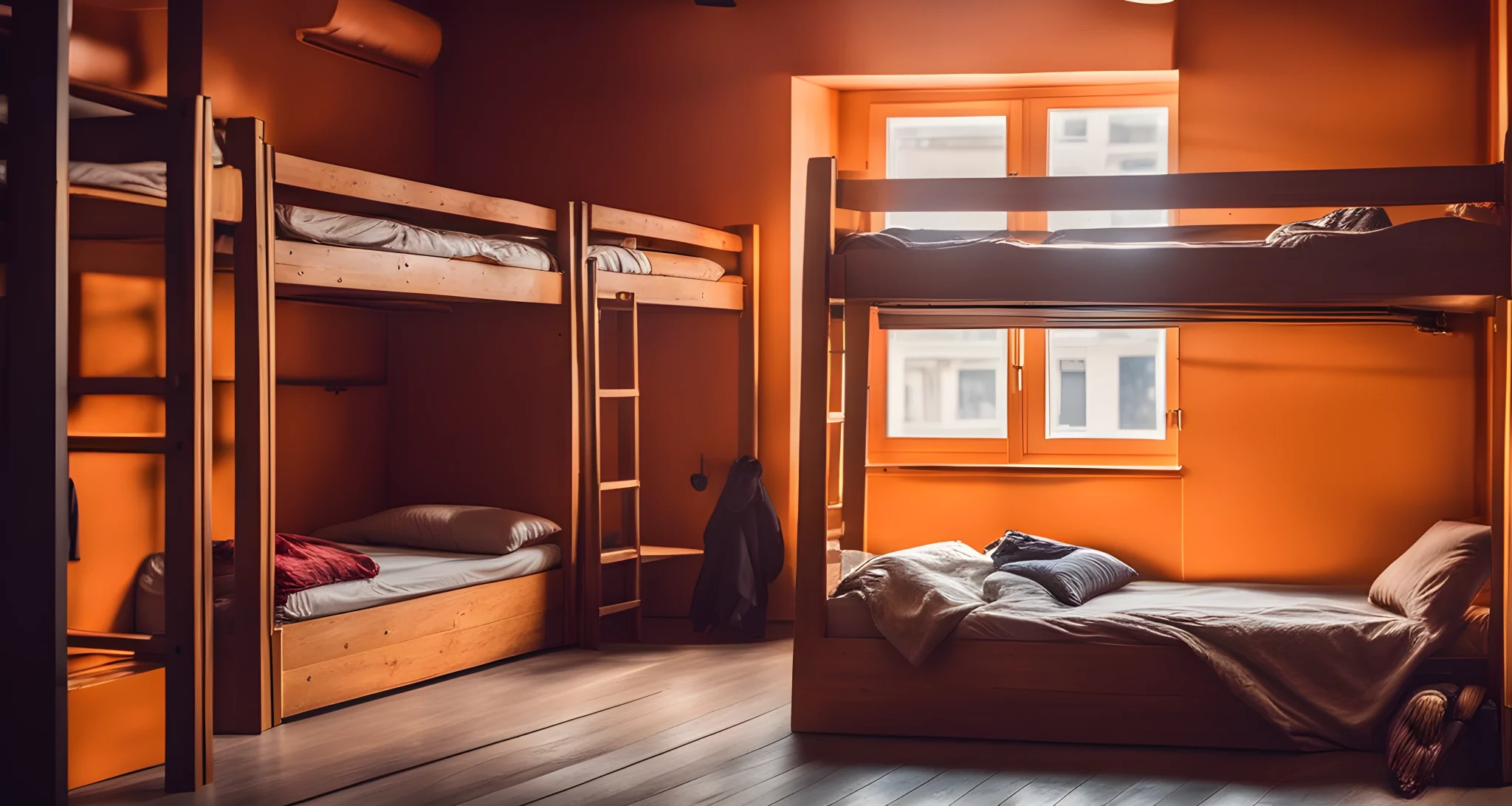
Budgeting by Item or Category
When it comes to budgeting for travel accommodations, it’s important to consider your expenses by item or category. This can help you allocate your funds more effectively and make sure you’re not overspending in one area while neglecting another. Here are some tips for budgeting by item or category:
Budgeting by Item
- Accommodations: Consider using Hostelworld to find budget-friendly hostels here where you can stay for a fraction of the cost of a hotel.
- Transportation: Look into affordable transportation options like public transit, walking, or biking to save money on getting around.
- Food: Plan your meals and consider cooking some of your own food to save on dining out expenses.
Budgeting by Category
- Lodging: Allocate a specific amount for lodging and stick to it. Hostels are a great way to save on accommodation costs.
- Transport: Set a budget for transportation expenses, including flights, trains, buses, and local transit.
- Food and Dining: Determine how much you can afford to spend on food each day and plan your meals accordingly.
By breaking down your budget into specific items or categories, you can gain a better understanding of where your money is going and make adjustments as needed. This approach can also help you identify areas where you may be overspending and find ways to cut back.
Remember to be flexible with your budget and make adjustments as needed. If you find that you’re spending more than anticipated in one area, look for ways to offset those costs in other areas. With a little research and flexibility, it’s possible to travel and explore without spending a fortune.
For more tips on long-term budget travel planning, check out our article on Long-haul travel budgeting strategies for additional insights.
With careful planning and a detailed budget spreadsheet, you can make the most of your travel experience while staying within your financial means. Happy travels!

Adjusting Your Budget as Needed
As you travel, it’s important to be flexible with your budget and make adjustments as needed. Unexpected expenses can arise, and you may find that certain costs are higher or lower than anticipated. Here are some tips for adjusting your budget as needed:
Stay Open to Alternative Accommodations
- Consider alternative accommodations such as hostels, guesthouses, or even homestays to save on lodging costs.
- Look for budget-friendly hotel chains that offer affordable accommodations Affordable hotel chains list.
Transportation Savings
- Explore public transportation options or consider walking to nearby attractions to save on transportation costs.
- Look for discounted transportation passes or consider carpooling with other travelers.
Food Budgeting
- Be open to trying local street food or cooking your own meals using local ingredients to save on dining expenses.
- Look for dining deals and happy hour specials at restaurants to stretch your food budget further.
Activity Expenses
- Research free or low-cost activities and attractions in the area to minimize activity expenses.
- Consider purchasing attraction passes or group tour discounts to save on overall activity costs.
Miscellaneous Costs
- Keep track of any unexpected expenses and adjust your budget accordingly.
- Look for ways to cut costs, such as using a water bottle instead of purchasing bottled water.
By staying flexible and open-minded, you can make the most of your travel budget and ensure that you stay within your financial means. Whether it’s finding alternative accommodations, seeking out transportation savings, or adjusting your food and activity expenses, being adaptable will help you make the most of your travel budget. Remember that staying within your budget doesn’t mean missing out on experiences – it just means being savvy about how you spend your money.

Conclusion
In conclusion, budgeting for travel is essential for making the most of your experiences without overspending. By considering various factors and creating a detailed travel budget spreadsheet, you can effectively plan and manage your expenses. Refining your budget with expense categories allows for better organization and tracking of your spending, ensuring that you stay on track financially.
Remember to adjust your budget as needed, especially if unexpected expenses arise during your travels. Regularly reviewing and refining your budget is crucial to staying financially responsible and making the most of your travel experiences.
For more tips on solo budget travel, check out our article on Solo travel money-saving tips for the ultimate guide to traveling on a budget.
By following these tips and staying proactive with your budget, you can enjoy unforgettable travel experiences without breaking the bank. Happy travels!
Remember, it’s important to continually assess and adjust your budget as necessary to ensure that you are able to make the most of your travel experiences while staying financially responsible.
FAQ
What are some ways to travel and stay for free?
You can volunteer through platforms like worldpackers, house sit through trustedhousesitters, or use couchsurfing to stay with locals for free.
What are the benefits of volunteering through worldpackers?
Volunteering through worldpackers allows you to exchange your help for accommodation and cultural immersion, providing a unique experience, new skills, and the chance to immerse yourself in local cultures.
Is couchsurfing safe?
Couchsurfing can be a great way to stay with locals for free and experience the local culture firsthand, but it’s important to read reviews and ratings to ensure a positive experience.
Where can i find budget-friendly hostels?
Hostelworld is a great resource for finding budget-friendly hostels for your travels.
